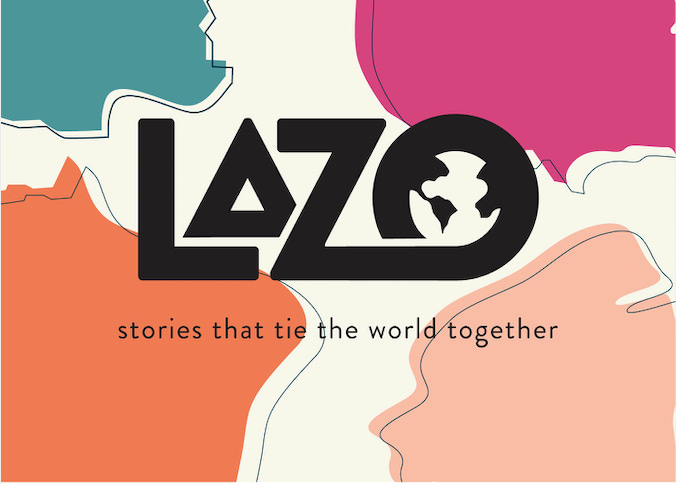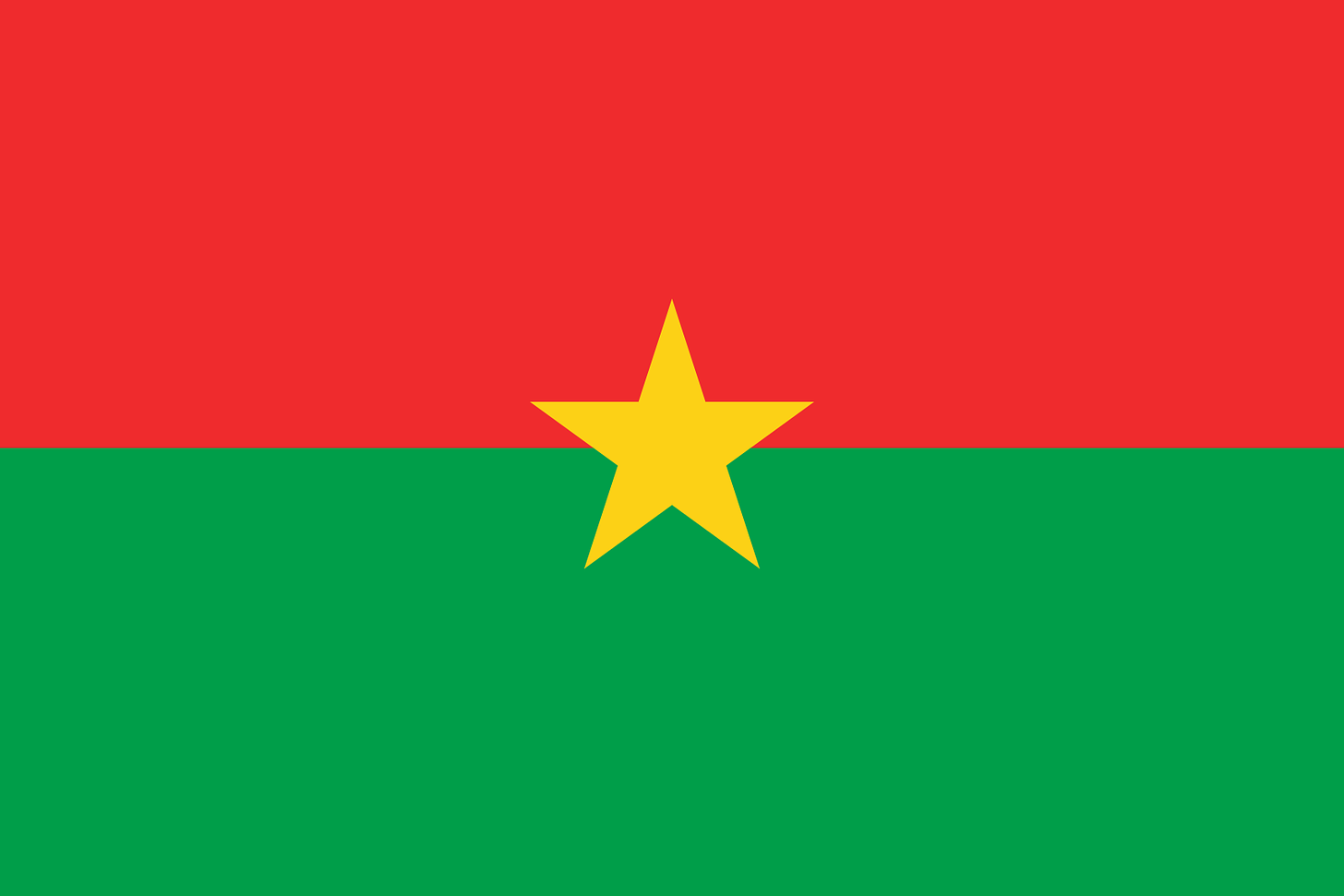#27 Burkina Faso
A quick programming note before this newsletter kicks off. I am off from work next week and will be mostly offline. If you need me for anything work-related, you'll have to wait until Monday the 17th.
This was a BIG news week, so feel free to skip to the bottom if you want to get right into it.
This week is about Burkina Faso.
Welcome to the 195 series, where I take you on a mini-tour of every country (and maybe some places that want to be countries). Each week I'll feature a new location. Some you may have heard of, while others may be new to you. The point is to learn and nurture our curiosity about the wider world. Maybe you'll find a new artist or musician you like, too.
Here's the link to copy and paste into your browser to support this project: https://lazo-letters.ghost.io/#/portal/signup. You can sign up for $2 a month or $22 a year.
Or, if you can't afford that, share the newsletter with a friend!
Country Info:
Population: Roughly 22.1 million.
Current government: Not so great. Freedom House downgraded the country from "partly free" to "not free" because of two military coups in 2022.
They write:
Burkina Faso’s status declined from Partly Free to Not Free due to the effects of two successive military coups, including the suspension of the constitution and dissolution of the legislature, and an expanding conflict with Islamist militant groups.
Two separate coups organized by the military in 2022 plunged Burkina Faso into political crisis, eliminating many of the significant political reforms implemented after the 2014–15 political transition. While civil society and organized labor remain strong forces for democracy, Burkinabè also face continued insecurity and violence from armed militant groups, militia groups, and government forces, displacing millions of people. Though the military’s justification for its two illegal seizures of power was to address growing security and humanitarian crises, insecurity worsened following the takeovers.
Al Jazeera has an explainer of the military coup here.
Religion: The country is pretty diverse from a religious perspective, but the majority of the population practices Islam.
The U.S. State Department's annual religious freedom report described the break up like this, but their data is a little bit old:
The U.S. government estimates the total population at 20.8 million (midyear 2020 estimate). According to the 2006 census, 61 percent of the population is Muslim (predominantly Sunni), 19 percent is Roman Catholic, 4 percent belong to various Protestant groups, and 15 percent maintain exclusively indigenous beliefs. Less than one percent is atheist or belongs to other religious groups. Statistics on religious affiliation are approximate because Muslims and Christians often adhere simultaneously to some aspects of traditional or animist religious beliefs.
Standout artist: Adjaratou Ouédraogo, a female painter exploring her personal history through her work.
Standout film: Sankara is not dead, a film about a poet traveling through his country to get to know it more deeply. His journey reveals the enduring political legacy of the assassinated former president Thomas Sankara, dubbed the "African Che Guevara."
A surprising thing: Burkina Faso has one of the world's youngest populations, with a median age of around 17. Most women have about 5 children, so the population continues growing despite high migration rates.
Story of the week: The National Review has a story about North Korea renewing relations with Burkina Faso, which gives us an idea of which direction the country is headed. Meanwhile, AFP reports that Burkina Faso's new military chief vowed to step up a "dynamic offensive" against jihadists following a string of insurgent attacks since the start of the year.
What I'm writing:
• Russia has taken over the rotating presidency of the United Nations Security Council, angering Ukrainians and sparking calls for UN reform.
The security council’s mandate is to maintain international peace and security. But as a permanent member, Russia can veto all U.N. resolutions, including those crafted to condemn its invasion. This story is unlocked and free to read.
• A group of Belarusian opposition leaders is pounding the pavement in Washington, D.C., touting a plan to pressure the regime of Belarusian strongman Alexander Lukashenko to release political prisoners.
What I'm reading:
Visited a family who have been living in temporary accommodation in Newham since 2018.
The family of 7 all sleep in one room on blow-up beds and sofas because black mould has infested every single room upstairs and is terrifying their kids, who think their house is cursed. pic.twitter.com/DPe8SDPIsy— Ruby (@RubyLGregory) April 6, 2023
• The Biden administration's full report on the withdrawal from Afghanistan.
• Russia’s security services are confiscating the passports of senior officials and state company executives to prevent overseas travel as paranoia over leaks and defections spread, the Financial Times reports.
• The killing of pro-Kremlin blogger Vladlen Tatarsky in an explosion at a St. Petersburg cafe is being investigated as a “high-profile murder,” the BBC reports.
Tatarsky’s real name is Maxim Fomin. Apparently an unknown woman handed him a statuette of himself, possibly stuffed with explosives, that blew up moments later. The cafe where this took place is connected to Wagner founder Yevgen Prigozhin. https://t.co/twwcyRbdfE pic.twitter.com/3b3shajHcf
— Christopher Miller (@ChristopherJM) April 2, 2023
• A 26-year-old woman named Darya Trepova was detained for the murder of Russian pro-war blogger Vladlen Tatarsky, the BBC reports. Russian officials say the “act of terror” was planned and organized from the territory of Ukraine, and that the suspect is a supporter of the Anti-Corruption Foundation, headed by jailed Russian opposition leader Alexey Navalny.
• A Russian group known as the National Republican Army organized the killing of pro-war Russian blogger Vladlen Tatarsky “without any help from foreign structures,” Ilya Ponomaryov, the former member of the State Duma, claimed on his Telegram channel. Tatarsky, who was from Eastern Ukraine, had criticized the Russian army for not going hard enough against Ukraine.
• The editor-in-chief of Novaya Gazeta and Nobel Peace Prize-winning journalist Dmitry Muratov warned the BBC that Russian state propaganda "is preparing people to think that nuclear war isn't a bad thing."
• The Washington Post reports that a web of trenches shows Russia fears losing Crimea. "With Ukrainian leaders vowing to retake all of their territory occupied by Russia, Moscow has readied elaborate defenses, especially in Crimea," they write.
• The U.S., Germany, and Hungary are pushing back against efforts by Poland and the Baltic states to offer Ukraine a road map to NATO membership during NATO’s July summit, the Financial Times reports.
• Former Georgian President Mikheil Saakashvili wrote an op-ed for Politico Europe. “I am a political prisoner in Georgia … and I am now dying,” he wrote. “My martyrdom will certainly be considered a victory for Putin — a powerful symbol to all leaders in this region, and possibly the world, who fail to stand up to Russian imperialism.”
• Finland’s left-wing Prime Minister Sanna Marin conceded defeat after the opposition right-wing National Coalition Party claimed victory in the parliamentary election, Reuters reports.
• Politico Europe has a profile of the center-right leader Petteri Orpo, who is expected to be Finland's new Prime Minister.
• Armenia won’t detain Russian President Vladimir Putin in compliance with an International Criminal Court arrest warrant if the Russian president travels to the country, according to Novaya Gazeta Europe.
• In Montenegro, former economy minister Jakov Milatović unseated Milo Đukanović after more than three decades of rule in a presidential runoff, Politico Europe reports. Milatović campaigned on an anti-corruption, pro-EU platform and won around 60 percent of the vote.
• Hashim Thaci, Kosovo’s former president and prime minister, pleaded not guilty to 10 charges of war crimes and crimes against humanity in the Kosovo Specialist Chambers of The Hague, the New York Times reports.
• Cars belonging to ethnic Serbs who switched to Kosovo-issued license plates were set alight in Northern Kosovo, according to the Turkish Andalou Agency. The dispute was sparked by Kosovo’s decision to require all citizens to have Pristina-issue plates, a move opposed by the Serb minority in northern Kosovo who want to use license plates from Serbia.
• The U.S. used diplomacy and declassified intelligence to persuade NATO ally Croatia to keep three Chinese state-owned companies from building and operating a modern ship-container terminal in the country, the Wall Street Journal reported. The port in Rijeka is particularly concerning for Washington because the NATO alliance uses it to move military equipment in and out of Europe.
• A pair of suspected deep-cover Russian spies are thought to have been a married couple living separate lives in Brazil and Greece, the Guardian reports.
• Politico Europe reports that there’s growing evidence that Russia’s foreign intelligence service (SVR) and its military intelligence agency (GRU) are aggressively trying to rebuild their human espionage networks — particularly with an eye toward military aid going to Ukraine.
• Russian efforts to use Twitter to shape Canadian public opinion about its invasion of Ukraine resonate with both the far right and the far left, according to a report by the Centre for Artificial Intelligence, Data, and Conflict.
• Police in Northern Ireland warned of potential public disorder linked to dissident republicans over Easter, as events are held to mark the 25th anniversary of the Good Friday Agreement, the BBC reports.
• The far-right mayor of the Peruvian city Lima closed a museum, arguing that the institution peddled a false narrative of the 1980-2000 conflict in which guerrillas and the army killed 70,000, the Guardian reports. Human rights activists fear that the move reflects a growing denial of the mass killings carried out by the armed forces and that the Mao-inspired Shining Path was not alone in committing atrocities.
• A secret agreement in 2021 gave the U.S. government access to Israeli cyber firm NSO Group’s geolocation tool that can covertly track mobile phones worldwide without the phone user’s knowledge or consent, the New York Times reports. The arrangement was made despite the White House placing NSO on a Commerce Department blacklist and declaring the company a national security threat.
• Israelis opposed to their far-right government flooded the streets in protest, despite Prime Minister Benjamin Netanyahu’s announcement of a pause to the judicial overhaul, the Washington Post reports. Protesters said they worried Netanyahu’s decision to “pause” the overhaul was a delay tactic and that the government would move forward with the bills once the opposition died.
• The Israeli government agreed in principle to establish a national guard, following the far-right minister Itamar Ben-Gvir’s demand for a militia as a condition for supporting Prime Minister Benjamin Netanyahu, the New York Times reports.
• Israel struck targets belonging to the Palestinian militant group Hamas in southern Lebanon and Gaza amid rising tension after Israeli police stormed the al-Aqsa mosque in Jerusalem, CNN reports.
• Saudi Arabia plans to invite Syrian President Bashar al-Assad to an Arab League summit Riyadh is hosting in May, Reuters reports. The move would formally end Syria’s regional isolation.
You can write to me for any reason at: c.maza@protonmail.com.








